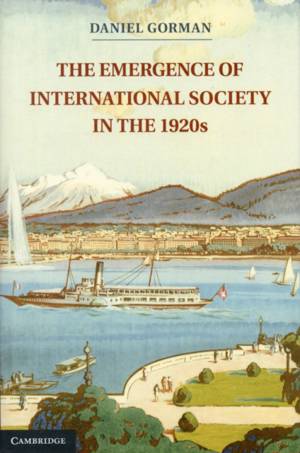
- Afhalen na 1 uur in een winkel met voorraad
- Gratis thuislevering in België vanaf € 30
- Ruim aanbod met 7 miljoen producten
- Afhalen na 1 uur in een winkel met voorraad
- Gratis thuislevering in België vanaf € 30
- Ruim aanbod met 7 miljoen producten
Zoeken
€ 194,95
+ 389 punten
Omschrijving
Chronicling the emergence of an international society in the 1920s, Daniel Gorman describes how the shock of the First World War gave rise to a broad array of overlapping initiatives in international cooperation. Though national rivalries continued to plague world politics, ordinary citizens and state officials found common causes in politics, religion, culture, and sport with peers beyond their borders. The League of Nations, the turn to a less centralized British Empire, the beginning of an international ecumenical movement, international sporting events, and audacious plans for the abolition of war all signaled internationalism's growth. State actors played an important role in these developments and were aided by international voluntary organizations, church groups, and international networks of academics, athletes, women, pacifists, and humanitarian activists. These international networks became the forerunners of international NGOs and global governance.
Specificaties
Betrokkenen
- Auteur(s):
- Uitgeverij:
Inhoud
- Aantal bladzijden:
- 390
- Taal:
- Engels
Eigenschappen
- Productcode (EAN):
- 9781107021136
- Verschijningsdatum:
- 20/08/2012
- Uitvoering:
- Hardcover
- Formaat:
- Genaaid
- Afmetingen:
- 163 mm x 236 mm
- Gewicht:
- 725 g

Alleen bij Standaard Boekhandel
+ 389 punten op je klantenkaart van Standaard Boekhandel
Beoordelingen
We publiceren alleen reviews die voldoen aan de voorwaarden voor reviews. Bekijk onze voorwaarden voor reviews.











